The BEST episodes written by Simon Schama
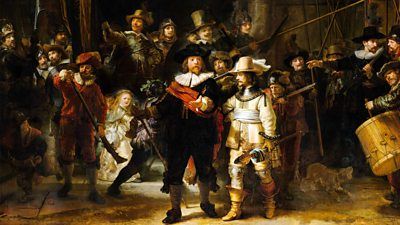
#1 - The Triumph of Art
Civilisations (2018) - Season 1 - Episode 5
Think Renaissance and you think Italy. But in the 15th and 16th centuries the great Islamic empires experienced their own extraordinary cultural flowering. The two phenomena did not unfold in separate artistic universes; they were acutely conscious of, and in competition with, each other and mutually open to influences flowing both ways. The fifth film in Civilisations goes east and west with Simon Schama: to Papal Rome but also to Ottoman Istanbul and Mughal Lahore and Agra, revealing those connections and rivalries, and examining how the role of artists from the different traditions of West and East developed in the years that followed the Renaissances. That rivalry unfolds most spectacularly over the creation of domes - in Ottoman Istanbul the great engineer-architect Mimar Sinan builds the light-flooded Süleymaniye mosque, while at the same time in Rome Michelangelo designs the great dome over the St Peter’s Basilica. The fate of the hero-artist, seemingly touched by God, with the gift of making visual miracles, diverged in east and west. In Europe, artists such as Benvenuto Cellini with his sculpture of Perseus with the Head of Medusa could lay claim to sovereignty over the world of art. As the century turned, the greatest European artists like Caravaggio, Velasquez and Rembrandt shook off decorum and turned muscular, earthy, and theatrical. Meanwhile in the East, Mughal art, in mausoleums like the I’tima¯d-ud-Daulah became ever more refined, poetic and exquisite.
Watch Now:Amazon#2 - Murder at Harvard
American Experience - Season 15 - Episode 13
A modern re-creation of the possible events behind the sensational murder of Dr. George Parkman in 1849 Boston.
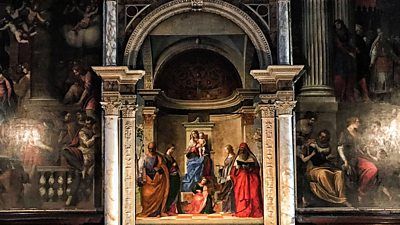
#3 - Radiance
Civilisations (2018) - Season 1 - Episode 7
Simon Schama begins with the great Gothic cathedrals of Amiens and Chartres to look at the links between colour, spirituality and civilisation. He then moves to 16th century Venice where masterpieces such as Giovanni Bellini’s San Zaccaria altarpiece and Titian’s Bacchus and Ariadne contested the assumption that drawing would always be superior to colouring. As the Baroque took hold in enlightenment Europe another Venetian, Giambattista Tiepolo, created a ceiling fresco Apollo and the Four Continents at the Bishop’s palace in Würzburg. In a glorious sequence Simon celebrates this grand opera of light, colour, and dancing line: a dizzying lift-off into 18th century elation. if colour could open the gates of ecstasy its absence could also drop art into the abyss. Francisco Goya began by working in the Venetian tradition but in the last years of his life his Black Paintings drained colour from the world of light. The art of colour discovered a new mission which somehow sustained the old: how to make life in cities bearable, even beautiful. Simon travels to Japan to where in the 18th and 19th century an urban explosion generated a demand for cheap, mass produced woodblock prints suffused with dazzling colour. These prints by artists such as Hokusai were hugely influential on the impressionists and post-impressionists. Simon ends the film in Matisse’s great chapel at Vence, where colour is used - against a backdrop of the Second World War - once more to enrapture, enlighten and as a path to God.
Watch Now:Amazon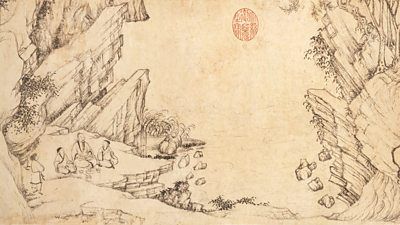
#4 - Picturing Paradise
Civilisations (2018) - Season 1 - Episode 3
Simon Schama examines one of our deepest artistic urges: the depiction of nature. Simon discovers that landscape painting is seldom a straightforward description of observed nature; rather it’s a projection of dreams and idylls, as well as of escapes and refuges from human turmoil; the elusive paradise on earth. Simon begins in the 10th century, in Song dynasty China. The Song scrolls are never innocent of the values of that world: the landscapes depict immense mountains projecting imperial authority. But as that authority was threatened and overwhelmed, majestic mountains are represented in geological turmoil, writhing and heaving. Imagined paradises in Islamic and Western art are often responses to loss and absence. But paradise could be recovered in the country villas of the Renaissance. Simon goes to the miraculously beautiful Palladian house of Daniele Barbaro in the Veneto, with murals painted by Paolo Veronese to contemplate the world of the cultivated country gentleman. It was in the cooler climate of northern Europe that landscape came into its own as a distinctive type of art. Simon looks at the works of the Northern Renaissance in Germany and the Netherlands, where emerging states sought expression of identity through depiction of their natural worlds. Simon ends in America where the landscapes of America are as expansive as the landscapes of Holland were confined, but there too, in the numinous photography of Ansel Adams, a kind of earthly paradise is revealed and a sense of nationhood is expressed in the natural world.
Watch Now:Amazon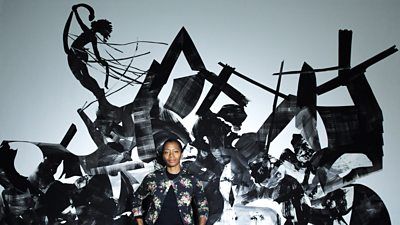
#5 - The Vital Spark
Civilisations (2018) - Season 1 - Episode 9
Simon Schama begins Civilisations with this premise: that it is in art - the play of the creative imagination - that humanity expresses its most essential self: the power to break the tyranny of the humdrum, the grind of everyday. Art, then, makes life worth living; it is the great window into human potential. And societies become civilized to the extent that they take culture as seriously as the prosecution of power, or the accumulation of wealth. But in the century of total war and industrial slaughter was (and is) that enough? The cause of humanity went up in the smoke of the Nazi crematoria. Horror and terror brushed beauty aside and stamped on its pretensions. And in the modern world art has become increasingly commodified. Simon’s last programme explores the fate of art in the machine and profit-driven world. It looks at the rise of art as a tradeable commodity and turns on one central question: should art create a realm separate from the modern world, a place where we can escape and pull the ladder up after us? Or should it plunge headlong into chaos and cacophony while transforming the way we see it and live in it? Using the works of both dead and contemporary artists of the 20th and 21st century Simon seeks answers to these profound questions. His conclusion is imbued with hope: despite all our travails, by engaging with the here-and-now art can still offer us an insight into the incomprehensibility of the world and a way to transcend its horrors with the enduring creativity of the human spirit.
Watch Now:Amazon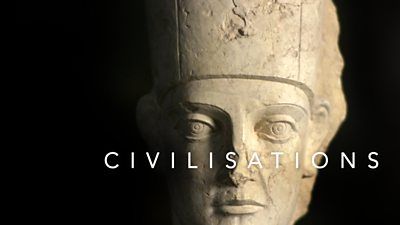
#6 - The Second Moment of Creation
Civilisations (2018) - Season 1 - Episode 1
The first film by Simon Schama in Civilisations looks at the formative role that art and the creative imagination have played in the forging of humanity itself. The film opens with Simon’s passionate endorsement of the creative spirit in humanity and the way in which art can help to forge the civilised life. Civilisation may be impossible to define, but its opposite - evidenced throughout history in the human urge to destroy - is all too evident whenever and wherever it erupts. Schama investigates the remote origins of human creativity with the first known marks made some 80,000 years ago in South African caves; marks which were not dictated merely by humanity’s physical needs. He marvels at later cave works too: paintings of bison and bulls, and Stone Age carvings. As time passes the elements of civilisation are assembled: written language, codes of law, and expressions of warrior power forged in metals. And humanity begins to produce art not just for ritual, as Simon discovers in Minoan civilisation. But how do such cultures arise and how do they fall? Simon travels to the civilisations of Petra in the Middle East and the Maya in Central America to answer those questions. He finds that ultimately civilisations depend on humanity’s relationship with the environment for their survival, and while all believe in their own continuity, all are doomed to fall.
Watch Now:Amazon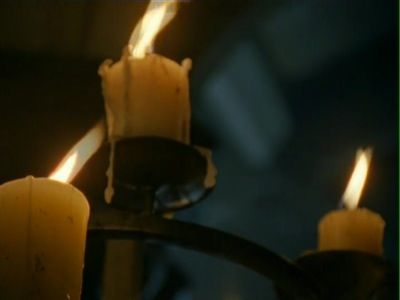
#7 - Conquest! (1000 - 1087)
A History of Britain by Simon Schama - Season 1 - Episode 2
1066 is not the best remembered date in British history for nothing. In the space of nine hours whilst the Battle of Hastings raged, everything changed. Anglo-Saxon England became Norman and, for the next 300 years, its fate was decided by dynasties of French rulers.
Watch Now:Amazon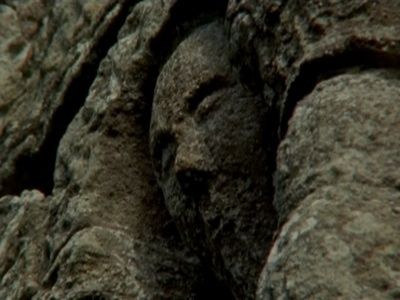
#8 - Nations (1216 - 1348)
A History of Britain by Simon Schama - Season 1 - Episode 4
Nations is the epic account of how the nations of Britain emerged from under the hammer of England's "Longshanks" King Edward I, with a sense of who and what they were, which endures to this day.
Watch Now:Amazon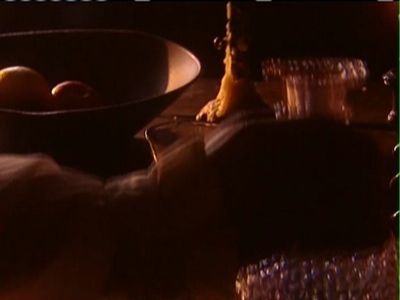
#9 - The Wrong Empire (1750 - 1800)
A History of Britain by Simon Schama - Season 2 - Episode 4
How did a people who thought themselves free end up subjugating so much of the world, a nation with such a distrust of armies become the greatest military power on Earth, an empire of the free become an empire of slaves?Britons took the flag across the globe and created an empire built on ambition and slavery, exploration and daring. Trade flourished in the addictive commodities of tea, sugar and coffee, as did the deplorable trade in people. Taxation lost Britain the American colonies, but paved the way for dominance in India, as tax gatherers became administrators and merchants, emperors. The Wrong Empire is the exhilarating and terrible story of how one small group of islands came to dominate the world; a story of exploration and daring, but also one of exploitation and conflict.
Watch Now:Amazon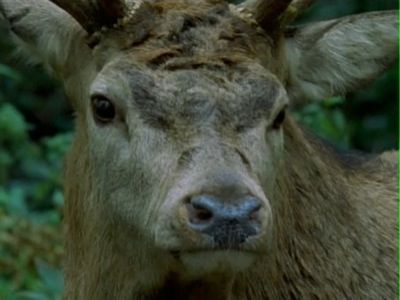
#10 - Dynasty (1087 - 1216)
A History of Britain by Simon Schama - Season 1 - Episode 3
There is no saga more powerful than that of the warring dynasty - domineering father, beautiful, scheming mother and squabbling, murderous sons and daughters, (particularly the nieces). In the years that followed the Norman Conquest, this was the drama played out on the stage of British history.
Watch Now:Amazon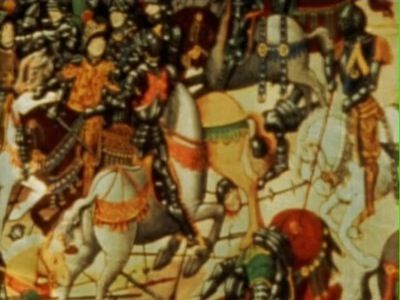
#11 - King Death (1348 - 1500)
A History of Britain by Simon Schama - Season 1 - Episode 5
It took only six years for the plague to ravage the British Isles. Its impact was to last for generations. But from the ashes of this trauma an unexpected and unique class of Englishman emerged.
Watch Now:Amazon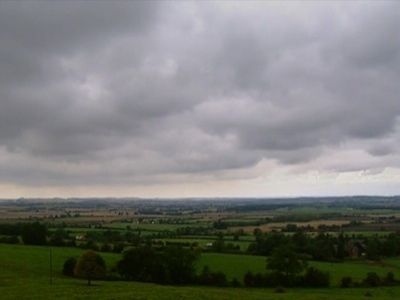
#12 - The British Wars (1603 - 1649)
A History of Britain by Simon Schama - Season 2 - Episode 1
The turbulent civil wars of the early seventeenth century would culminate in two events unique to British history; the public execution of a king and the creation of a republic. Schama tells of the brutal war that tore the country in half and created a new Britain - divided by politics and religion and dominated by the first truly modern army, fighting for ideology, not individual leaders.
Watch Now:Amazon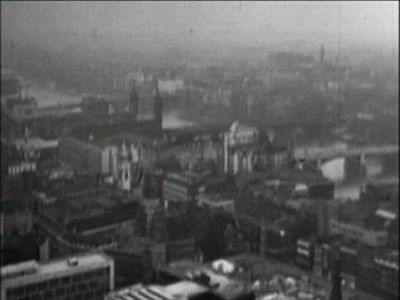
#13 - The Two Winstons (1910 - present)
A History of Britain by Simon Schama - Season 3 - Episode 4
Schama's last programme is a meditation on the place of the past in Britain's 20th-century history. Personified in the sharply different reactions of two of its greatest figures, Winston Churchill and George Orwell, the programme explores the fate of the country through two world wars, the slump and a nervous postwar peace. What was the impact of the crusades and the protests of the century, and did Winston Smith, hero of Orwell's 1984, foresee the contemporary political landscape?
Watch Now:Amazon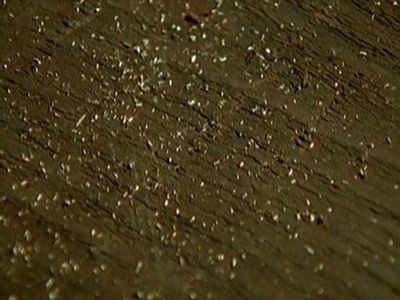
#14 - The Body of the Queen (1558 - 1603)
A History of Britain by Simon Schama - Season 1 - Episode 7
This is the story of two queens - Elizabeth I the consummate politician and Mary Queen of Scots the Catholic mother. It is also the story of the birth of a nation.
Watch Now:Amazon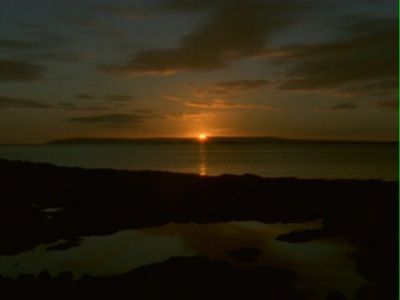
#15 - Beginnings (3100 BC - 1000 AD)
A History of Britain by Simon Schama - Season 1 - Episode 1
Simon Schama starts his story in the Stone Age village of Skara Brae, Orkney. Over the next four thousand years Romans, Anglo-Saxons, Vikings and Christian missionaries arrive, fight, settle and leave their mark on what will become the nations of Britain.
Watch Now:Amazon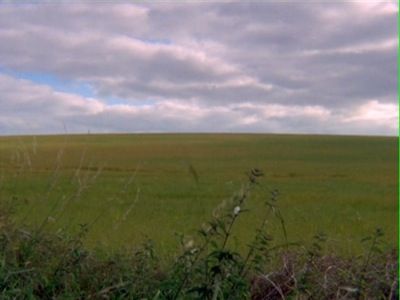
#16 - Burning Convictions (1500 - 1558)
A History of Britain by Simon Schama - Season 1 - Episode 6
Here Simon Schama charts the upheaval caused as a country renowned for its piety, whose king styled himself Defender of the Faith, turns into one of the most aggressive proponents of the new Protestant faith.
Watch Now:Amazon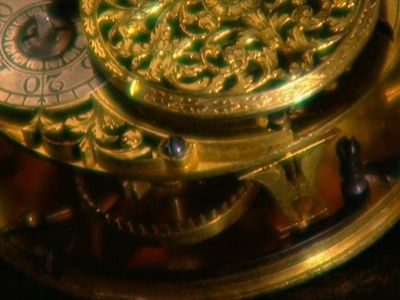
#17 - Britannia Incorporated (1690 - 1750)
A History of Britain by Simon Schama - Season 2 - Episode 3
In 1690s England, the victors of the Glorious Revolution celebrated the dawn of a new era under a new king - William III. In Scotland, the Jacobites still supported the deposed King James II and the country suffered crippling poverty and famine.Relations between Scotland and England were tainted by the Glencoe Massacre in 1692 and Westminster's strategy to scupper the Darien venture. Half a century later, however, the two countries were forging a partnership, based on profit and interest, which evolved into the Act of Union in 1707.
Watch Now:Amazon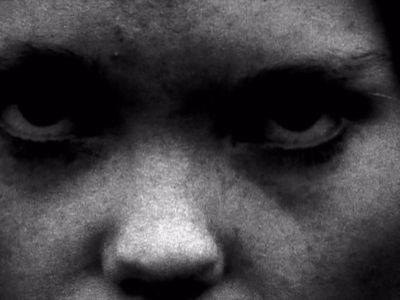
#18 - Revolutions (1649 - 1689)
A History of Britain by Simon Schama - Season 2 - Episode 2
In the aftermath of Civil War, Britain was a kingless republic led by Oliver Cromwell. Cromwell ruled with an iron hand; when Parliament dared defy him, he marched in and closed it down. He ruled as king in all but name, with his Major Generals imposing Godly Puritan rule on the counties. The anarchy that prevailed at his death led to the Restoration of Charles II, who survived the Great Fire and a dynastic crisis triggered by anti-Catholic paranoia. James II's Catholic fervour threatened to trigger another revolution; he was deposed by the troops of the Dutch King William.
Watch Now:Amazon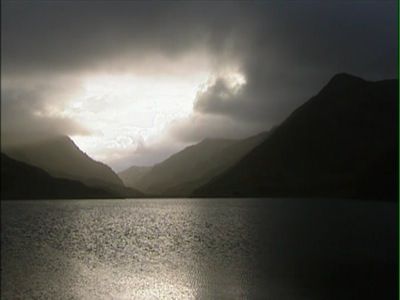
#19 - Forces of Nature (1780 - 1832)
A History of Britain by Simon Schama - Season 3 - Episode 1
Britain never had the kind of revolution France experienced in 1789, but came close to it. This programme explains how 'the romantic generation' discovered the politics of sympathy with the common man. Nature was turned into a revolutionary idea by radicals and poets like Thomas Paine and William Wordsworth, and events across the channel following the fall of the Bastille initially seemed to point a way forward for Britain. But when the terrifying reality of the French Revolution set in, nature was recruited by the patriots.
Watch Now:Amazon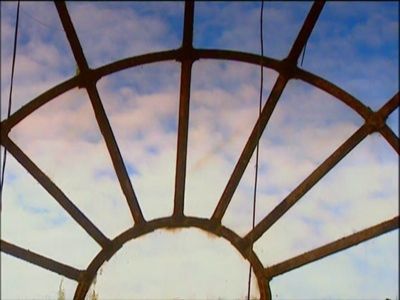
#20 - Victoria and Her Sisters (1830 - 1910)
A History of Britain by Simon Schama - Season 3 - Episode 2
Queen Victoria came to the throne at the tender age of eighteen, to rule over a country in the throes of a painful but supercharged industrial transformation. Chaos and revolution had been predicted by both socialists and traditionalists but in fact family life provided a bedrock of stability. This is how Britain's women, from the Queen to Chartist charladies and West Indian nurses managed the intense change and attempted to galvanize social reform for their Victorian sisters.
Watch Now:Amazon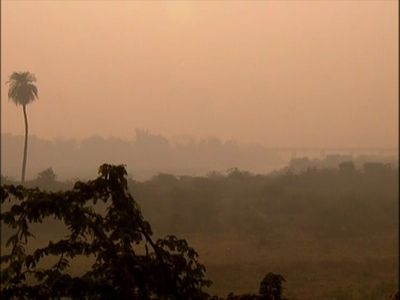
#21 - The Empire of Good Intentions (1830 - 1925)
A History of Britain by Simon Schama - Season 3 - Episode 3
The British Empire promised peace, stability and prosperity but in Ireland and India it coincided with violence and famine. The programme examines the origins of agonies which continue to resonate today, and how political justice failed to feature in the administration of the time. As Victorian prime ministers, Gladstone and Disraeli promoted very different visions of Empire, but despite their lofty ideals, Schama observes how 'common humanity was sacrificed to the fetish of the market'.
Watch Now:Amazon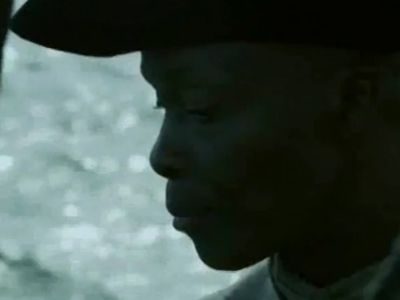
#22 - Simon Schama: Rough Crossings
BBC Documentaries - Season 2007 - Episode 42
Rough Crossings, presented by Simon Schama, tells the story of Britain, the slave trade and the American War of Independence; and how the British government offered freedom to enslaved African Americans if they would fight for the king. It focuses on the little-known, heroic story of three incredible men: freed slaves Thomas Peters and David George and English Naval Officer John Clarkson.